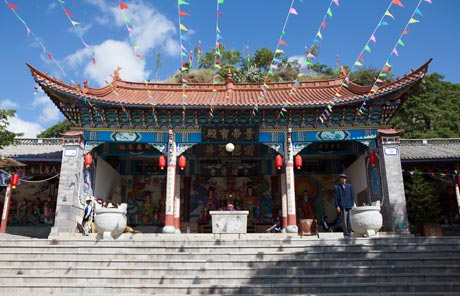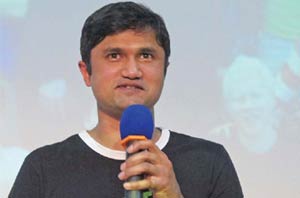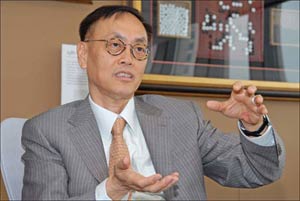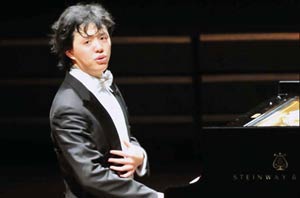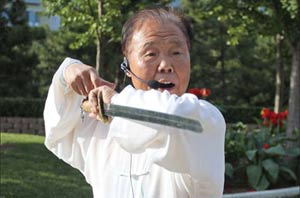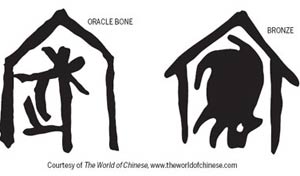National rejuvenation urged
Updated: 2011-10-10 07:01
By Xin Dingding and Zhao Yinan (China Daily)
|
|||||||||
|
![President Hu Jintao greets former leader Jiang Zemin during a ceremony on Sunday morning at the Great Hall of the People in Beijing to mark the centennial of the 1911 Revolution. [Sheng Jiapeng / China News Service] National rejuvenation urged](../../attachement/jpg/site1/20111010/0013729e48090ffc6c0a0c.jpg) |
|
President Hu Jintao greets former leader Jiang Zemin during a ceremony at the Great Hall of the People in Beijing on Sunday, Oct 9, 2011, to mark the centennial of the 1911 Revolution. [China Daily] |
BEIJING - President Hu Jintao called on people on both sides of the Taiwan Straits to work together for national rejuvenation as the country marked the 100th anniversary on Sunday of the revolution that overthrew imperial rule.
Addressing a commemoration of the 1911 Revolution, Hu said that national rejuvenation, a cherished goal of Dr Sun Yat-sen and other revolutionaries, should be the common aspiration on both sides of the Straits.
Peaceful national reunification best serves the fundamental interests of all Chinese people including Taiwan compatriots, he said.
"We should ... end cross-Straits antagonism, heal wounds of the past and work together to achieve the great rejuvenation of the Chinese nation," Hu said.
|
 |
The political common ground, opposing "Taiwan independence" and upholding the 1992 Consensus, which agrees that there is only one China, must be boosted, he said.
The 1911 Revolution, which began on Oct 10 with an armed uprising, ended 2,000 years of imperial rule and toppled the Qing Dynasty (1644-1911).
This was a "thoroughly modern, national and democratic revolution" that shook the world and ushered in unprecedented social changes in China, Hu said in a speech delivered to about 3,000 people attending the ceremony.
Members of the Political Bureau of the Communist Party of China's (CPC) Central Committee, the country's top ruling body, as well as representatives from non-Communist parties, lawmakers, political advisers and people without party affiliation, attended the half-hour ceremony.
Zhou Tienong, chairman of the Central Committee of the Revolutionary Committee of the Chinese Kuomintang, one of the non-Communist parties, said that the CPC is the natural inheritor of the anti-imperial and anti-feudal revolution led by Dr Sun.
Most members of the Revolutionary Committee of the Chinese Kuomintang, founded in Hong Kong in 1948, were former middle- and high-ranking Kuomintang officials or people with Taiwan connections.
Zheng Jianbang, vice-chairman of the Central Committee of the Revolutionary Committee of the Chinese Kuomintang, echoed Hu and said that peaceful national reunification had been pursued by Dr Sun.
"Over the past century, economic development and the rejuvenation of Chinese culture are goals shared across the Straits," Zheng said.
Relations have improved markedly since Taiwan leader Ma Ying-jeou of the Kuomintang came to power in 2008.
The mainland is the island's largest trading partner and investment destination, as well as home to a growing number of Taiwan people. In 2011, cross-Straits trade totaled $145.4 billion, a year-on-year rise of 37 percent.
Wang Chaoguang, a researcher with the Institute of Modern History under the Chinese Academy of Social Sciences, said Hu's speech showed that China is a peace-loving country.
China cherishes peace more than any other country because it was nearly torn apart by the turbulence of violence, he said.
"Those who worry about China's growing strength and regard us as a threat are wrong."
Xinhua contributed to this story.

